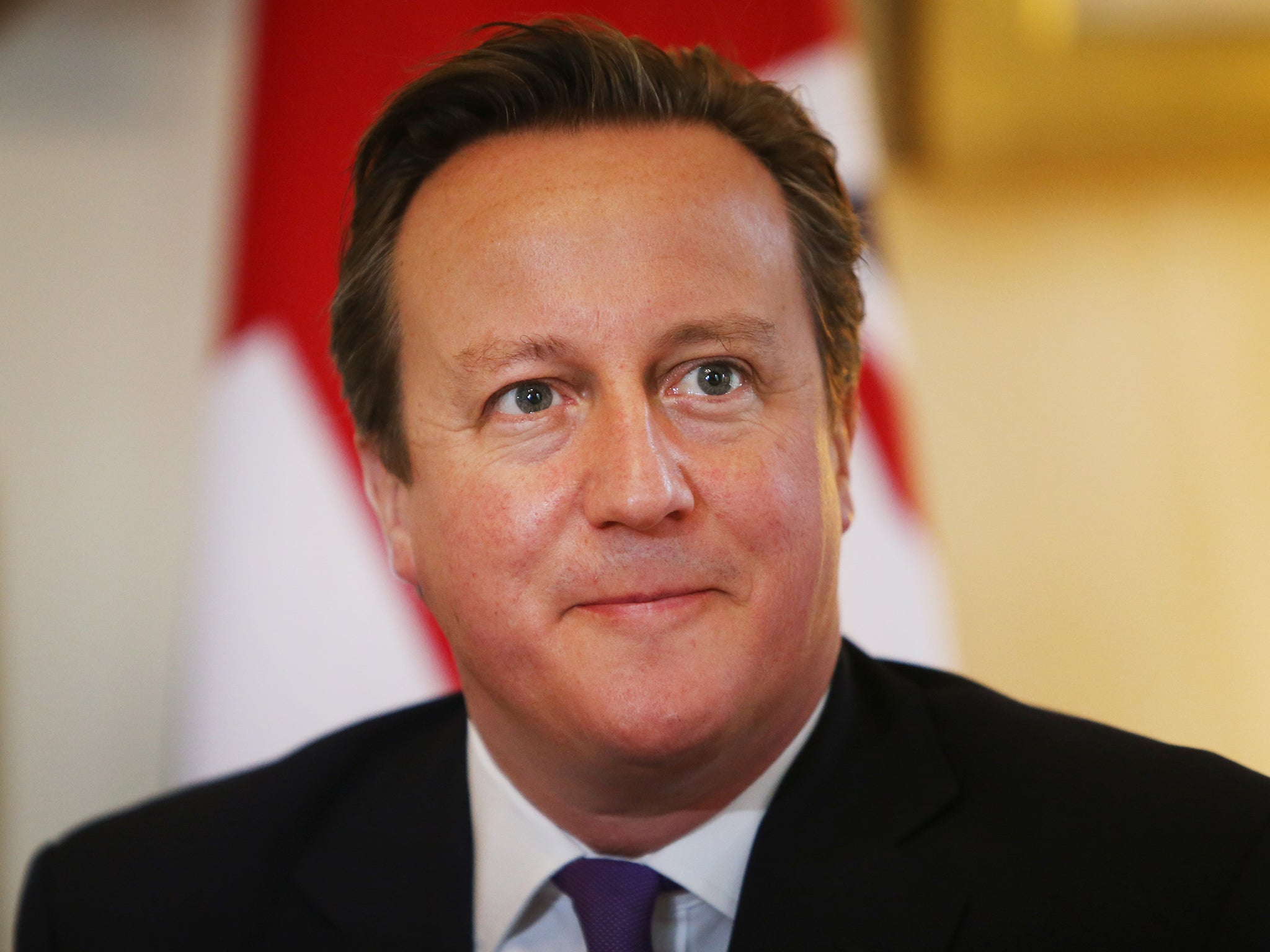Suddenly, everything's going David Cameron's way
European opinion is moving against once-sacred tenets of the EU – and in the PM's favour


Two months ago, David Cameron thought he would probably be digging in his Oxfordshire garden now, having narrowly lost the general election. He would have been recorded in history as a one-term prime minister, who never quite won an election, held together an unlikely coalition, started to deal with the deficit and temporarily held off the Scots separatists, but who hardly left a mark.
Instead, he won a famous victory, could be Prime Minister for 10 years and now has started to reshape the European Union. History is being made around us, and he is in a strong position to steer it.
The Greek crisis could be a huge distraction from his attempted renegotiation of Britain’s place in Europe, but it is also an opportunity. If Greece were forced to abandon the euro, that would finally kill the federalist fiction that the whole of the EU will share a single currency one day. Just as “ever closer union”, that resonant phrase from the 1957 Treaty of Rome, would lose something of its rhetorical force. Yes, I know the sentence goes on, “among the peoples of Europe”, not their countries, but it still sounds like a statement of federal intent, which is why Cameron is trying to get rid of it.
Last week, Martin Schulz, the social democrat who is president of the European Parliament, said he had “no chance” of doing so. He went on to accuse Cameron of “lies”, spreading “hatred” and “stirring a feeling of panic over so-called benefit tourists”. If you put on your headphones for the translation you will find that what Schulz was saying was: “Yes, of course a deal will be done, but bear with me while I posture for a leftish pro-EU audience in Germany.”
Schulz’s bluster is designed to distract from the facts on the ground, which are Cameronian. Not only is the euro finally testing the limits of the laws of economics in Greece, but it has come up against the limits of public opinion in the rest of the eurozone. Trying not to sound too pleased about it, a Downing Street source reports that the attitude in the German and Dutch media is: “We are not giving the Greeks one effing penny more. Why should we pay so that they can keep a lower retirement age than us?”
Not only that, but European opinion is moving against other once-sacred tenets of the EU. The defeat of Helle Thorning-Schmidt, the Danish social democratic prime minister, by an alliance of parties led by the anti-EU People’s Party was an important event last week. All those liberal lefties who think proportional representation is such a marvellous idea should note that, in Great Britain, the Conservatives plus Ukip won 50.6 per cent of the vote in our election. In Denmark their equivalents were the actual winning combination, only with the Ukip party winning more votes – and therefore seats – than the Tory one.
The Danish election means that there will be another EU government that supports Cameron’s renegotiation, but it also marks a shift in EU opinion on the free movement of workers. The Danish People’s Party campaigned on an anti-immigration platform for which Schulz would struggle to find the words, having spent them on Cameron’s moderate Euroscepticism. The human traffic across the Mediterranean ought to inspire our pity and compassion, but we can recognise that it inspires other emotions too. We need only observe that the French have closed their border with Italy and to hell with all that passport-free Schengen sugar-talk.
“The plates are shifting in Europe,” says a source close to Cameron. The first round of his renegotiation, his tour of European capitals, “could have blown up on launch”, I am told. It seems a modest claim to make: it could have been a disaster but he was merely received politely and told he would get nowhere by Schulz and the Polish prime minister.
Now, however, we move to phase two. At the European summit in Brussels this week, the British renegotiation is item four. The summit may be dominated by the Greek crisis, but it will also start off technical talks involving people of whom the British public have never heard. Ivan Rogers is our ambassador to the EU who, when he was Cameron’s EU adviser, wrote him one of those rare civil service notes recording that he had advised him against a referendum. I think history will record that Cameron’s judgement on that subject was sound. It will be Rogers and Tom Scholar, the Prime Minister’s current EU adviser, who have to work out with EU partners the details of the deal that will be put to that referendum.
Before they have even started, Ipsos Mori last week recorded a three to one majority for staying in Europe, a 24-year high. In Britain and on the Continent, opinion is moving in Cameron’s favour.
Two months ago, he could have been history. This week, he is making it.
Join our commenting forum
Join thought-provoking conversations, follow other Independent readers and see their replies
Comments